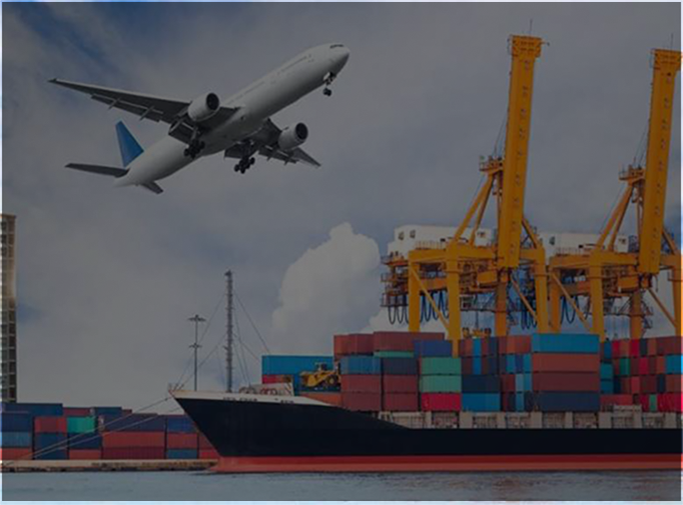Once countries start exporting whatever they are rich in, as well as importing goods they lack, their economies begin developing. Importing and exporting goods is not only important for businesses; it is important for individual consumers, too. Consumers can benefit from certain products or components that are not produced locally, but are available to purchase online from a business abroad.

Import Export Companies in Australia:
- PAKVAL Business Solution – Allows you to focus on selling and marketing your products and not worrying about the function of warehousing.
Prompt Distribution Pty Ltd – Prompt specialise in providing tailored logistics solutions to large & small clients across a range of industries.
- Australian Institute of Export – Includes information to learn exporting, importing, corporate training and with international trade publications.
- Australian Lamb Company – A food suppliers, wholesalers and exporters of Australia livestock, lamb and meat.
- Haltec – Products include a complete range of tyre valves and accessories for construction, mining and other applications.
- Nungar Trading Company – Australian export company and suppliers of boots, hats, leather accessories and clothing.
- Ocean Exports Pty Ltd – Exporters of seafood products including prawns, fresh fish, frozen, chilled fish, scallops and crabs.
- Sanwa Australia – Specialist import and export of industrial raw materials – plastics, steel, chemicals, minerals, paper, timber and building products.
- Wellard Group – Australian livestock exporter focusing on sheep and cattle, also have a network of meat processing facilities.
Import Export Companies in Pakistan:
Hawks Apparel- Hawks Race Wears A customer focused company is engaged in the production of a wide range of Motorcycle Clothing, Gloves, shoes and related accessories. Established in 2016 and founded by the C.E.O. Mr. Khawaja Sulaman Aleem. Sialkot, Pakistan
Rk Enterprises- Rk Enterprises is importer,Exporter and suppliers of Sugar Centrifugal Equipments.QUALITY, PRECISION AND RELIABILITY FOR THE SUGAR INDUSTRYRK Enterprises is the supplier of perforated metal products. Hasan Abdal, Pakistan
Al Qasim Enterprises- Al Qasim Enterprises is one of Pakistan’s most trusted supplier and distributor of pharmaceutical, surgical, nutritional products, food supplements and lifestyle products range. We offer the supply of pharma, surgical and food supplements. Rawlpindi, Pakistan
Biosorin- BioSorin is a Pakistan based company, actively involved in marketing of Clinical Diagnostics, In Vitro Fertilization, Life Sciences & research instruments and consumables of highest repute. BioSorin is one of the top market leaders in Pakistan. Lahore, Pakistan
GreenPak Shipping Pvt Ltd- GreenPak Shipping is the agent for Evergreen Line the Taiwanese carrier in Pakistan. We offer global services and transport solutions with full commitment.The GreenPak Liner agency offers a high quality services in Pakistan. Karachi, Pakistan
Texcher International- We are newly esstablished company of sports gloves.Texcher International has been at the forefront of Leather products manufacturing since 2012. Handcrafted leather products, making us the indisputable leader in the leather goods. Sialkot, Pakistan
Helpful material to start Import Export business:
Businesses always start with an idea. But ideas come in many different shapes and sizes so you need to figure out what suits you and what you want to achieve.
Types of import/export businesses:
There are three basic types of import/export businesses. Starting out, it’s a good idea to pursue the one that interests you most.
Export management company
Let’s say a company in Australia wants to export copper. That’s where an export management company (EMC) can help.
An EMC handles all of the details for the company to ship goods overseas. This could include hiring distributors, creating marketing materials and preparing shipping logistics.
Export trading company
An export trading company (ETC) finds out what foreign buyers want and then locates domestic companies that can export the goods.
Import/export merchant (or free agent)
Import/export merchants buy merchandise from a manufacturer — foreign or domestic — then resell that merchandise around the world. There’s heavier risk involved in being a free agent — but with fewer middlemen, the potential for higher profits as well.
Startup costs:
You can start your own import/export business with little upfront costs.
At a minimum, you need a phone and a reliable Internet connection. You’ll also want to invest in business cards, a website and a fax machine. And it doesn’t hurt to hire somebody for your branding, including a unique business logo.
In reality though you’ll need a lot more than this to get going. A lot of companies that enter the import/export business in Australia are already operating elsewhere, so crucial skills and resources include:
- In-depth knowledge or connections with companies in the United States looking to buy goods from Australia.
- In-depth knowledge or connections with companies in Australia looking to export their goods to the US.
- Start-up capital to travel to businesses, manufacturers and potential clients to discuss deals and products.
Registering your business:
To register your import/export business, you need to fill out the US Department of State’s SNAP-R company registration.
After you submit your information, the Department of State will send you an email about how to get a company identification number (CIN). A CIN is used for tax purposes and for registering with the US Department of Commerce.
Import and export licenses
Typically, the US Customs and Border Protection (CBP) doesn’t require a license to import goods to or export goods from the United States. However, other government agencies or departments or local governments may require them.
If you’re exporting goods, you can find out which licenses may be required by asking your local port of entry.
Charging for your services:
Import/export business typically charge based on commission or retainer.
Commission structure
With a commission structure, you’re paid a percentage of any trade deal you close — usually around 10%. For example, if you sell a manufacturer’s smartphone for $300, you’ll make a $30 commission. On top of your commission, you’ll also want to charge for expenses like packaging and shipping.
Retainer model
On a retainer model, your client pays you a monthly fee to be on call when they need your services.
To find the right amount for your retainer, consider your costs — these may include labor, supplies and overhead.
An alternative model
Beyond a commission or retainer structure, you can simply buy goods and sell them. In this case, your revenue will come from the profit you make from selling merchandise.
Risks and how to avoid them:
Unpredictable shipping logistics
Needless to say, your success hinges on whether you can ship goods safely and efficiently. If you’re exporting goods, for example, you’re responsible for ensuring they leave your local port and arrive at the correct destination on time.
You’ll also need to account for anything else that could go wrong, such as damage to the cargo. Staying organized and partnering with a reputable freight forwarder will help you ship goods without a hitch.
Not knowing enough about markets
It’s a good idea to thoroughly research a market before entering into this business, though even that may not be enough.
Consider hiring experts who understand the tastes and cultures of your specific markets. You’ll need to sell products that resonate in countries you’re unfamiliar with.
Running into problems at the border
Customs rules aren’t uniform throughout the world. Instead, you’ll encounter a mass of different regulations while transporting goods. To avoid drowning in a swamp of border regulations, hire experts in customs law and trade compliance.




